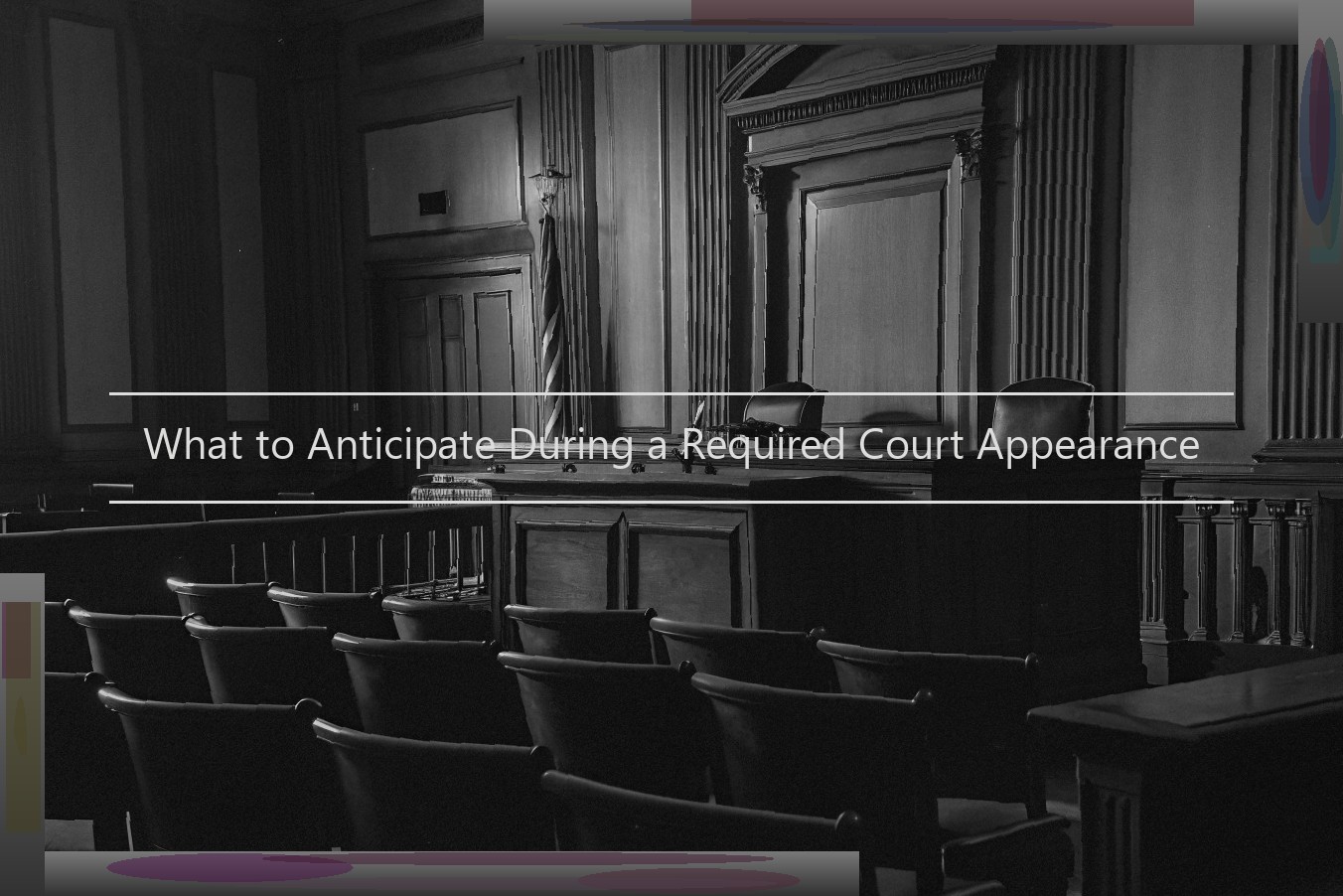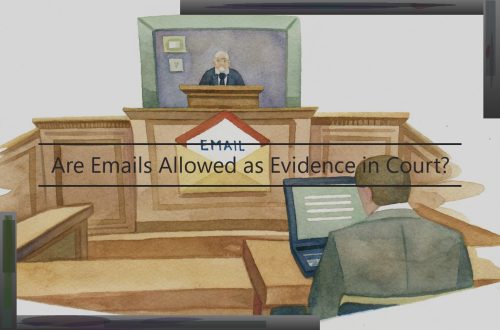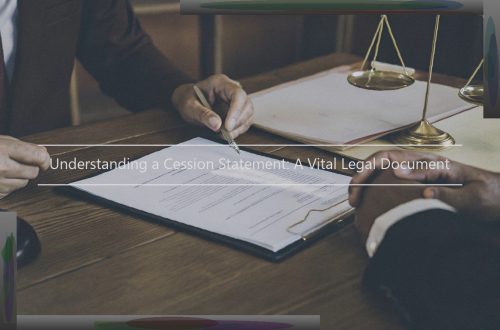What to Anticipate During a Required Court Appearance
Mandatory Court Appearance Explained
A mandatory court appearance is a court that is mandatory to attend. It is when there are potential criminal charges or serious legal matters involved which require in court with your attorney to address. In criminal cases, traffic lawyers and DWI lawyers will tell you there are mandatory court appearances in criminal matters such as pre-trial conferences, plea hearings, court trials, and final sentencing. A handful of courts such as in North Carolina require all parties and attorneys to appear at all hearings. Some mandatory court appearances are required even if you cannot be in the state where your case is. There are laws regarding the places you are required to be and not be . If you do not go you could lose your freedom if you were attempting to avoid your charge or conviction. Some traffic laws vary based on county, so drivers should be careful and check specific laws regarding traffic tickets. If you do not show up it could take 30 days and then you will be facing a suspended license and probably have larger fines or criminal consequences. Certain DUI charges or felony charges could result in a bench warrant being issued for the arrest of anyone who does not appear at a scheduled court date. It is important to call your attorney to discuss any issues you may be having with getting to court and see if an alternative solution can be found.

Cases that Necessitate a Mandatory Court Appearance
The following are the most common cases that require a mandatory appearance in court:
Criminal Cases: In criminal cases, a mandatory appearance will usually be required when you are facing charges that are an arrestable offense. An arrestable offense is something that involves jail or prison time if you were convicted. When you are facing serious criminal charges that carry the potential of jail time, you should consider hiring a criminal defense lawyer. Your defense lawyer will appear on your behalf to give you peace of mind about not having to go to court for every court hearing.
Civil Cases: Depending on the type of civil case you are involved in, if you have a lawsuit filed against you, it is important that you hire an attorney to file the response to the Plaintiff’s lawsuit for you. Avoid giving the court the reason to issue a bench warrant for your arrest by just filing the proper response to the lawsuit. A lawsuit is a civil case where the Plaintiff has to sue you in order to obtain their money. This money could be from a written business contract, a written promissory note, a credit card, a written loan agreement, etc. If the Plaintiff received a judgment against you for their lawsuit, a creditor can use the judgment to garnish your wages or use other aggressive tactics to collect the debt against you.
Traffic Court: It is extremely important to hire an experienced traffic ticket lawyer to appear in traffic court on your behalf. Most of the time, traffic offenders don’t realize that they have the right to hire a traffic ticket lawyer to appear on their behalf in traffic court. Some of the major citations that you can be arrested for are driving on a suspended license, driving without an interlock device, a hit & run accident, or if you are cited as a habitual violator.
How to Prepare for a Court Appearance
When you receive your notice that attendance is mandatory, the best thing you can do is talk to an attorney. There may be no way for you to avoid a court appearance, but there is a right way and a wrong way to go about it. An experienced attorney will be familiar with the objections that can be made to your traffic ticket and can advise you if the best strategy is to fight or to plead guilty with an explanation.
In either case you will want to be ready for your court date. Tip: show up 30 minutes early. This gives you a chance to prepare, but also to listen to other traffic cases and better understand how things work.
Bring the required documentation. You may be told by the police officer, or even the clerk, that you do not need to bring your proof with you. The court clerk does not decide your punishment, and the officer may not know the particulars of your case. Bring your proof. You also need to know the exact amount of your court ordered fines, or else be willing to accept whatever they are.
Know that courtroom environments can be casual, but you should dress appropriately. Wear nice pants, and a shirt with a collar. Dressing nice shows respect to the system. Do not wear flip-flops, sandals or shorts. You could be "late" if the clerk doesn’t allow you to appear. The judge has discretion in allowing appearances and some judges are more lenient than others. Dress nice, so that no one questions your motives.
Be polite. When it is your turn, walk to the front of the room where you were instructed to be. Face the clerk or judge and state your full name. Say, "Your honor," whether you are speaking to the judge or the clerk. Your attorney should be speaking on your behalf if you hire one. If not, it is your responsibility to present your evidence briefly and respectfully.
Listen and respond to the judge. The judge is not going to tolerate excuses, arguing, or excuses. Judges are not here to punish the guilty or reward the innocent. Their job is to apply the law and do so consistently. Do not try to convince the judge to show you leniency. Explain to the judge how this would impact your life. Follow the advice of your attorney regarding what to say, and what not to say. Remember, if you hire an experienced attorney, he will be able to do the talking for you.
What to Expect During the Court Appearance
check-in and security walk-through: Arrive at the courthouse with enough time to get through security and into the courtroom no less than 15 minutes prior to your appearance time. Bring a photo ID (most frequently a drivers license) with you.
presentation of plea and proof: The purpose of this section is to present the judge with a plea and proof package. The package will include the Uniform Traffic Ticket, the Notice of Violation, the proof of insurance, a driver history from Georgia or another state as necessary, and proof of completion of any driver improvement course that may have been the subject of a court ordered sentence. The package(s) will also include a "Notice of Appearance" which was signed in advance by both the officer and the driver acknowledging agreement with the proposed resolution of the matter. In addition to the paperwork, the original citation will be returned to the court. Once the paperwork is presented to the Judge, a copy of the proposed Plea and Proof package will be retained in the court file for the record. If the matter fails to resolve and is contested, then the officers proposed resolution of the matter will be placed on the record.
presentation of the parties and hearing: The Judge will ask the officer if they are in agreement with the proposed resolution and will return the citation request for reinstatement of driving privilege unless there is a reason why the citation should remain open for some other reason. The judge will then ask the driver to come forward to take a seat at a table (the one closest to the Judge). The Judge will ask the driver to state their name and address. In the case of a minor, the driver will be asked to state their name and date of birth while their parent or guardian states their name and relationship to the driver and their address. The Judge then goes through the paperwork that has been presented to them for Plea and Proof. If all of the paperwork is in order and the resolution is as presented, the Judge will call the case out. This process can occasionally be confusing to an individual who is unfamiliar with Court. However, it is as clear as it can reasonably be made. After the Judge calls the case number, the calendar clerk will read the name of the defendant. The clerk will usually make the roll call three times. If the clerk does not call out your name, raise your hand and tell the clerk you are present. Once all of the cases on the calendar have been called out, the clerk will make an announcement that the Judge is ready to hear cases in the courtroom. At that time the Judge will begin to call through the calendar to hear the cases by calling the case number out and calling for the parties’ attention to be given to the matter. The court will then ask the parties to bring the paperwork and come to the front of the bar. Once all of the parties are present the Judge will ask if everyone is present. Once verified, the court staff calls out the case details including the dates/times of occurrence, the offenses, and the agreement of the parties to the resolution. If the case is granted a hearing at that time, the court staff will read the citations and the parties will be notified of the date for the next hearing. If the case is a reinstatement of a suspended license, the court staff will notify the parties of any reinstatement fees and when they are due in court. In the event the case is going to be spoken to a court appearance date will be set and the bottom of the citations will be stamped in order for the clerk to know that the case has been addressed so that they can continue to process the rest of the calendar. No other processing will be done to the citation until the appearance has occurred unless the parties wish to do so. If the case has been resolved, the Judge will sign the paperwork presented in the Plea and Proof. In the event the paperwork is not signed, the case will be continued before the court and scheduled to be heard as discussed in the prior paragraph.
Penalty for Not Showing Up to a Mandatory Court Appearance
Courts impose mandatory appearances all the time. That means that if you want to avoid the legal consequences of a missed court date, you must be in attendance. But what information could you really get on the phone anyway? What, if any, are the consequences of missing that mandatory court appearance? It depends on whether it is the first time you’ve missed a court date, or whether you have missed court before. It also depends on the reason you are missing court. If you were sick or if your child was sick, the court is likely to understand that. But if you are missing court so that you can go to the golf course, then there is going to be a problem. If you are missing court the first time, the worst thing that could happen is you end up with a warrant for your arrest. It could be considered contempt of court or disobeying a court order. In most cases, particularly when done for the first time, the magistrate will set another court date in a month for the same purpose and tell you that the next time you miss it, you are going to be charged with contempt of court. The court will also issue an Order of Arrest so that you can be brought back. Then she’ll have another chance to talk to you about doing what you’re supposed to do. With a civil case, the justice of the peace might not do anything to you except reset the case to another date, often the soonest that they have room in their schedule. However, if you have missed the court date to pay a traffic fine, get your car inspected, get your licenses or registration renewed, the judge can suspend your privileges to drive a motor vehicle. If they do that , you will receive an Order of Contemporary Suspension telling you that you no longer have the privilege to do so. The only way to get the suspension lifted is to go back before that magistrate who will then lift it once you have presented evidence of the action you should have done to remedy the situation. That magistrate may or may not issue a new fine, or reduce the older fine. If you are late to court again, or if you are late getting this taken care of, the magistrate might find you in contempt of court, requiring you to do community service or possibly pay for attorney’s fees, depending on what it is for. In rare cases, like missed child support payments, you could possibly be incarcerated in jail, or loose other privileges like your license, passport, or visitation rights. So what do you do if you cannot attend a mandatory court appearance? Most courts, particularly if they are municipal or magistrate courts, hold a court session every single day. With a circuit court, they hold court every single month. So if you cannot make the original court date, just show up the next day. An appearance by you is more important than an appearance by an attorney. Of course, hiring an attorney to represent you is always a good idea. But the important thing is to appear and to make sure that the court know you are there. If the thing you are asking for is reasonable, they will understand there are conflicts and that some things are simply unavoidable. The magistrate is always the judge of your intent and your credibility. So err on the side of appearing and being respectful of the court to the best of your abilities.
Representation and Your Legal Rights
It is essential to understand that a mandatory court appearance is a serious matter, and having legal representation is invaluable. In some instances, people overestimate their knowledge of the law or underestimate the severity of the situation they are facing and believe they do not need an attorney to handle the matter. It is always in your best interest to consult with a lawyer regardless of the situation you are involved in.
As mentioned earlier on this blog, government agencies are tasked with enforcing the regulations and laws of the state; enforcement means fighting to make an example out of you. They want to change behavior and ensure compliance. It is important to remember that no matter what you say, your statements will be recorded by the judge and/or special agent in the courtroom. Even if you are a reputable member of the Lansing community, without proper representation, you can never truly know what to expect further down in the legal process. Your statements can be misconstrued and taken out of context, leading to further legal issues. On several occasions, I have seen people try to defend themselves, only to realize that they were facing much higher penalties than they ever imagined. As attorneys, we see this unfold in courtrooms every day. In court, the prosecuting agency is represented by a special agent, an attorney and the prosecutor; having legal representation yourself can only help you defend yourself further against accusations made. Regardless of the charges you are faced with, having a skilled criminal defense attorney at your side is vital. An attorney will ensure you understand your rights and provide you with the most effective representation possible.
Court Appearance Tips
When attending a mandatory court appearance, there are dozens of strategies which would be useful in making sure the last time you are late to Court – at least in Cook County – will be that last time. The best way to make an impression to your Judge is the first impression: When you walk into the courtroom. There are countless rules the lawyers often forget for dressing appropriately, such as the length and stature of a tie, the width of the lapel of a coat, whether a coat should be fully buttoned or open, how long your jacket sleeve should be (and what colors your socks should be). Others include when to stand or not to stand, speaking in a quiet manner or boisterously and assertively, when to sit or stand, and much more. All – if broken – can cause the judge to question your demeanor. Encouraging judges to know that "Halloween" is not over on November 1st, try to wear conservative colors . What ever that means. Black, brown, navy, gray, beige, light blue, etc. all work.
Should you always wear a coat or blazer? Which one works best? The one you have, of course. Shoelaces broken or shoes unlaced? Unacceptable. Untucked shirt? Error. The entire idea is that you step inside the courtroom feeling like a million bucks. You may or may not be a diligence, and you may or may not be successful, but at least you look great along the ride. It is about impressions. Even down to a tie clasp or pin. Beware of the "rule of work" in that you do not want a tie that works harder than you do. Just so long as you are aware of them.
If you follow these simple rules, or at least aware of them, you will attain a baseline of respect in the courtroom. It is those little things – either right or wrong – you need to keep your eye on.




